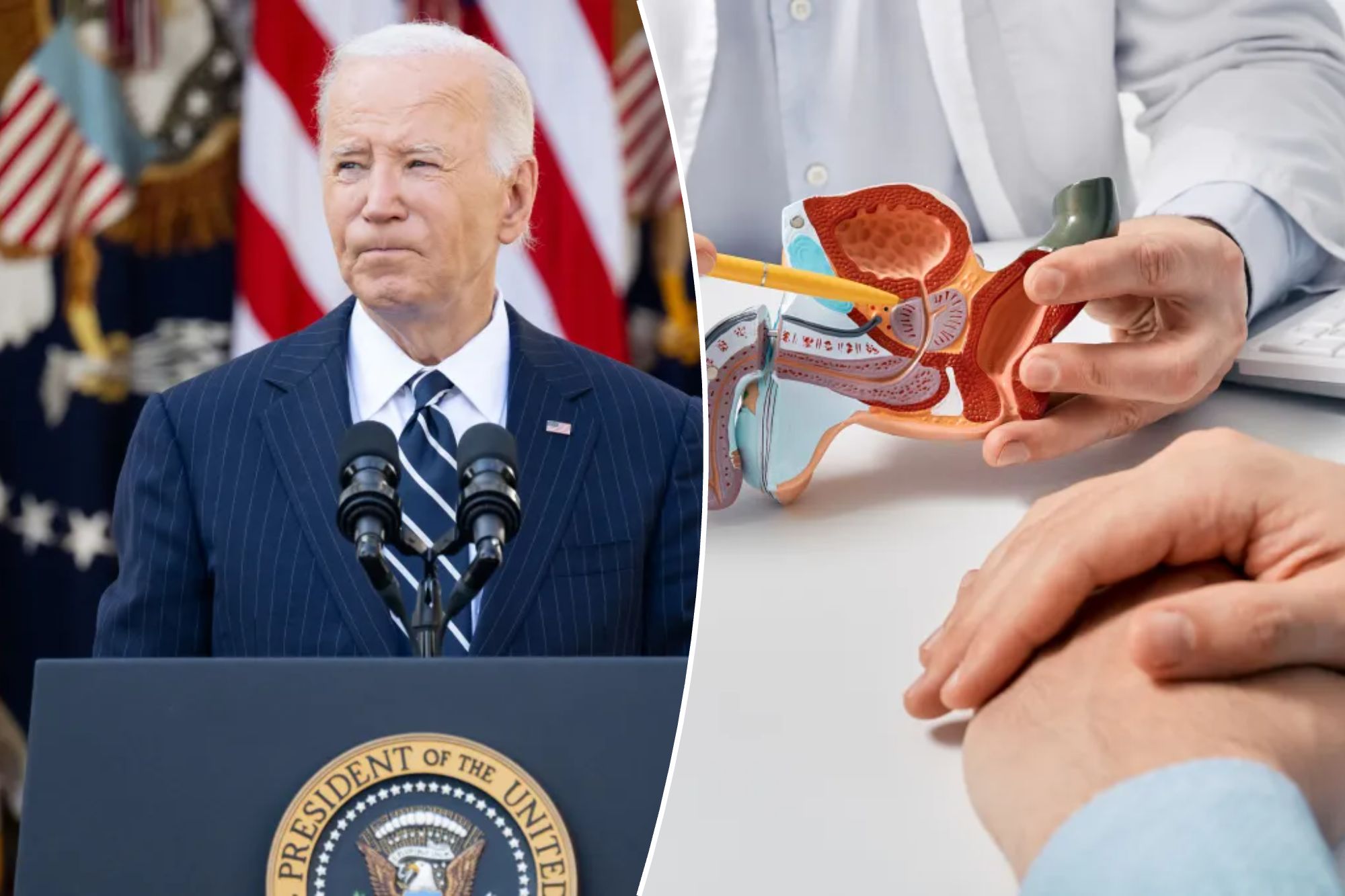
The news that former President Joe Biden, 82, has been diagnosed with a “aggressive” form of prostate cancer sent shocking waves across the country this week.
While the overall rate of five-year survival for prostate cancer is a 97% impressive, that number sinks to only 37% after the disease spreads to other parts of the body, according to the American Cancer Association.
In the wake of Biden’s bombshell announcement, Dr. David Shusterman, a board -certified urologist and founder of modern urologist, is offering support for New Yorkers.
Shustterman is providing free blood-specific prostate antigen (PSA) antigen tests-a major tool for examination for prostate cancer-in his office at Midtown East by the end of June.
Patients do not need insurance for the initial test, although the following care may be needed if the PSA levels return elevated.
Men interested in examining can call (212) 991-9991 to book an appointment.
“At the time you need to check your phone, your provider can perform an examination that can make a significant change in your future health,” Shustterman The Post told. “Pride in taking this step.”
Prostate Cancer 101
Biden’s diagnosis was news on the front page, but prostate cancer is not rarely. The second most common cancer among the men in the US, with 1 in 8 is expected to withstand it at some point in their lives, according to the National Institute of Health.
And it is serious deadly, ranking second only for lung cancer in cancer -related deaths among American men.
While prostate cancer can hit at any age, the risk ascends to every birthday. Most cases are diagnosed after the age of 65 years.
Some men face even more steep chances. Black men are disproportionately affected and are more likely to be diagnosed at a younger age with more aggressive forms of the disease than other racial or ethnic groups.
Adding risk? Prostate cancer often grows slowly and has no symptoms in the early stages, which means many men go years without knowing they have it.
When symptoms appear, they can imitate other common prostate problems, such as a prostate or enlarged prostatitis, according to the Mayo Clinic.
Possible signs of early warning include:
- Blood in the urine or sperm
- Frequent urination
- Problems that begin to undress
- Wake up often night to urinate
Once cancer progresses, symptoms can become more serious:
- Accidental urine leakage
- Back pain or bone
- Dysfunction
- Tiredness
- Unexplained weight loss
- The weakness in the arms or legs
Doctors diagnosed Biden after he began to experience “increased urinary symptoms”, according to his personal office. A physical exam discovered a “small knot” in his prostate, leading to further evaluation.
When you are checked
Prostate cancer may be secret, but early examination gives doctors the best opportunity to catch it when it is more curable. Once the disease spreads to the bones, as in the case of Biden, it becomes incurable.
Experts recommend men to start checking conversations with their doctors at the age of 50. But if you are black or have a family history, start those discussions at 40 or 45.
Most health organizations do not advise the previous examination 70 because the potential benefits are not likely to exceed the damage.
An examination of prostate cancer usually includes a PSA blood test – raised levels can be a sign of prostate inflammation, enlargement or cancer – and a digital rectal exam.
“This is the part that causes the most anxiety, but it is short and generally painless,” Shusterman said.
“An ultrasound technology inserts a small probe, lubricated into the rectum to visualize the prostate gland for the exact size and shape and any irregularities, such as the prostate growth, in the bladder.”
Tips for the first shows
“Completely is completely normal to feel anxious about your first prostate exam-but is a sign of maturity and self-care to spend with it,” Shustterman said. Here are his advice for men subject to their first performances.
- Do not drop it: is a quick exam that can provide information on saving life.
- Express any concern to your doctor: a good provider will explain every step and help reduce the fear of the unknown.
- Program wisely: Choose a time when you are not hasty or stressed, as is the earlier in the day.
- Wear comfortable clothing: it makes it easier to strip and correction.
- Discover your intestines before: this can make the prostate test more comfortable.
- Bring: If allowed, a friend or partner come to the meeting to facilitate tension.
- Practice deep breathing: Even some soothing breaths in the waiting room can lower the stress level.
- Focus on the facts: Millions of men go through this. It is routine, and medical professionals make it all the time without trial.
#Diagnosis #Biden #Cancer #promote #free #prostate #display #NYC
Image Source : nypost.com